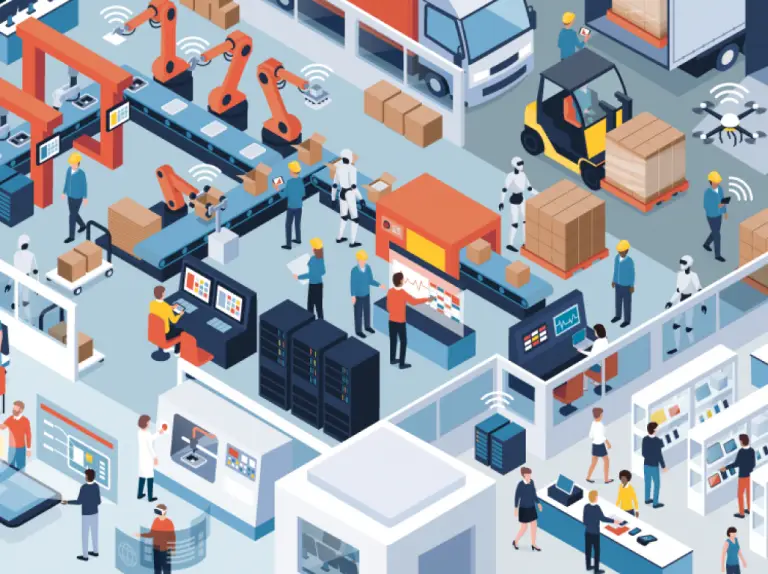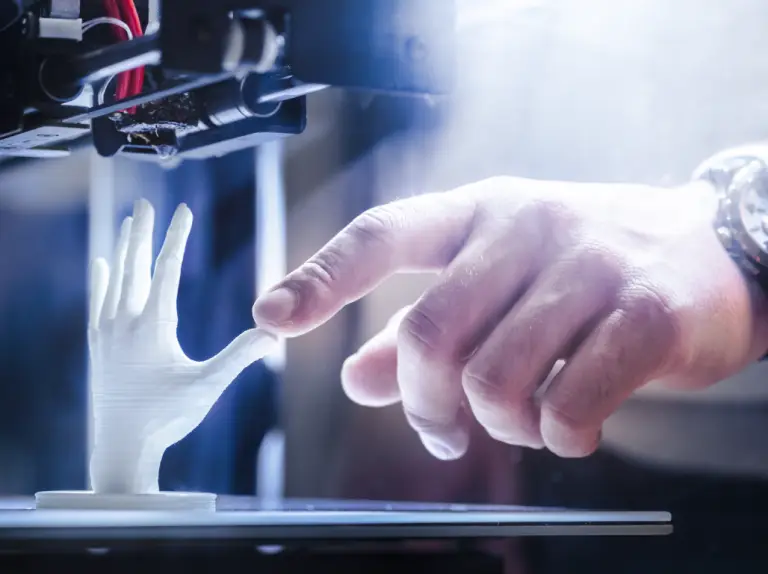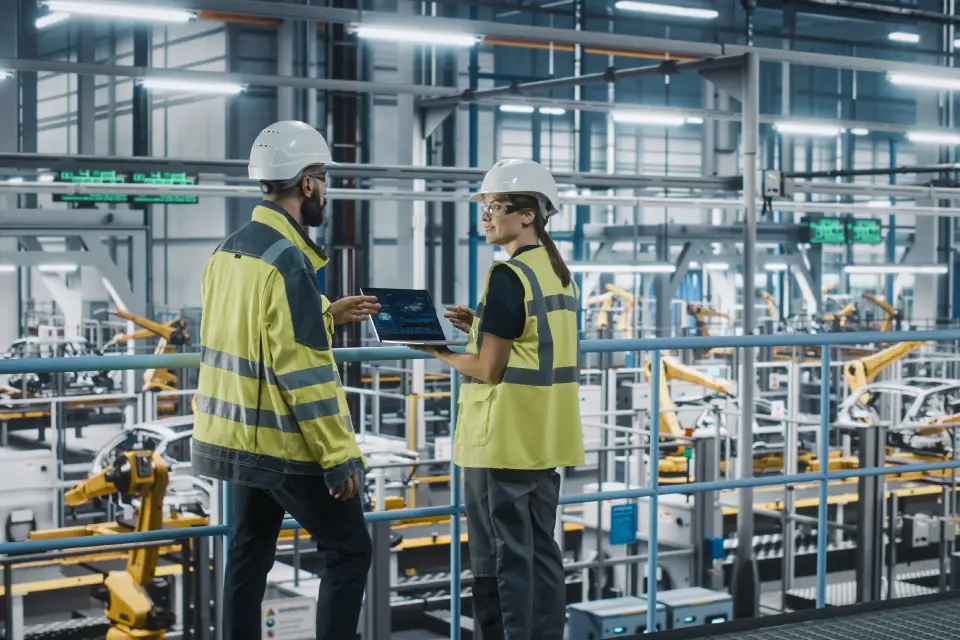In a world driven by progress and technology, the future of manufacturing jobs is rapidly evolving. From advanced technology to environmental responsibility, digital skills for manufacturing are at the forefront of change. Let’s explore the key trends that are shaping the future of manufacturing employment:
1. Smart Factories
Traditional factories are becoming smarter with the use of new ies. Smart factories use sensors and computers to make production faster and more efficient. This creates new opportunities for workers to use digital skills for manufacturing in their jobs. Additionally, smart factories prioritize safety by implementing automated safety protocols and advanced monitoring systems. They also offer opportunities for remote troubleshooting and maintenance, allowing workers to address issues from anywhere in the world.

2. Collaborative Robots
Collaborative robots, or cobots, work alongside people to enhance productivity and safety in manufacturing environments. These robots are flexible and excel at repetitive tasks, freeing up human workers to focus on more creative work. Workers who can effectively collaborate with cobots will be in high demand. Additionally, cobots are designed to quickly adapt to various tasks, reducing the need for reprogramming and increasing production flexibility.
3. Sustainability
More companies are trying to be environmentally friendly. They are finding ways to reduce waste and use renewable energy. This means there will be more jobs in green technology and sustainable practices. Additionally, sustainability initiatives in manufacturing involve optimizing energy usage, reducing emissions, and implementing eco-friendly materials. These efforts create opportunities for workers to specialize in environmental management, resource efficiency, and sustainable supply chain practices.
4. 3D Printing
3D printing is changing manufacturing. It allows people to make custom products quickly and easily. This will create jobs for people who know how to design and work with 3D printers. Furthermore, 3D printing technology is expanding beyond prototyping to include end-use production, creating opportunities for workers skilled in design optimization, materials science, and post-processing techniques. It also enables distributed manufacturing, allowing for localized production and customization to meet specific market demands.

5. Digital Skills for Manufacturing
As technology becomes increasingly integrated into manufacturing processes, workers need to stay updated with the latest digital skills. Proficiency in computer usage and data analysis is essential, but beyond that, a diverse range of competencies is now in demand. From programming and cybersecurity to digital design and IoT connectivity, workers must continuously upskill to meet the evolving needs of the industry.
Embracing AI use in manufacturing tasks is becoming more prevalent in day-to-day operations. For instance, with THORS Manufacturing Genius, an operator can ask a question and get knowledge on demand at the point of need, saving valuable production time.
By embracing digital skills in manufacturing, individuals can position themselves for success in the digital age of manufacturing.
6. Remote Work
As technology continues to evolve, remote work is becoming increasingly viable in the manufacturing sector. Beyond traditional tasks like equipment monitoring and communication, remote work now extends to virtual collaboration in design, engineering, and project management. This shift offers flexibility for workers to balance their professional and personal lives while contributing to global manufacturing operations. By leveraging digital tools and connectivity, workers can transcend physical barriers and collaborate seamlessly across geographical boundaries, ultimately enhancing operational efficiency and fostering a more agile workforce.

The future of manufacturing jobs is changing fast. By learning new skills and being open to new ideas, workers can prepare for the opportunities ahead in this exciting field.



